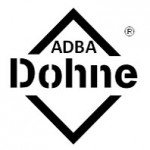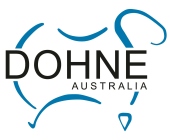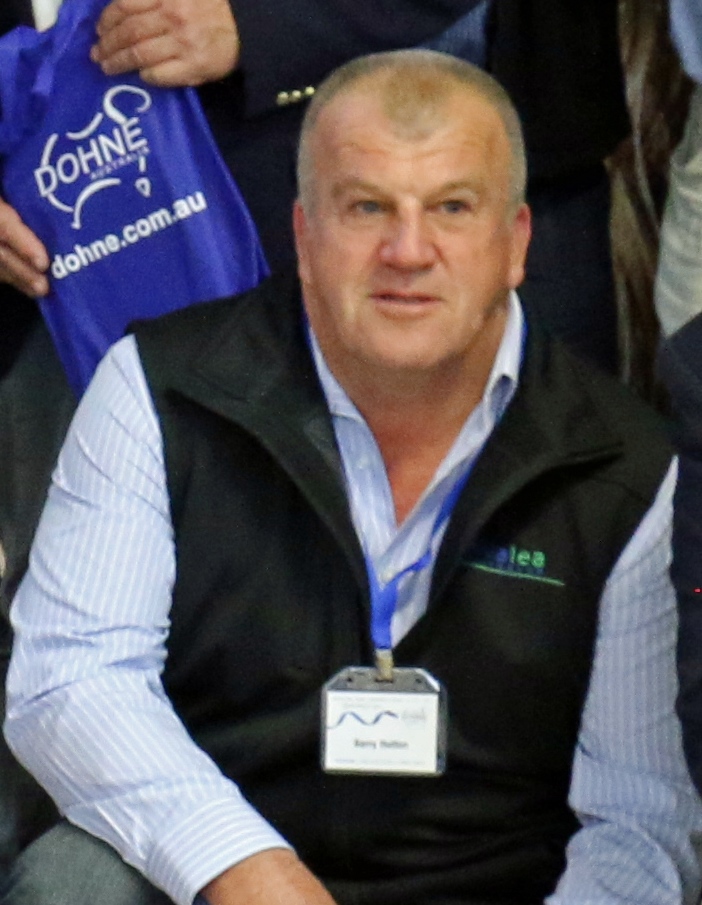Ethical Livestock Farming and Feedlotting Dohnes at Rivalea
By Barry Hutton – Former Rivalea Australia. Agricultural Manager. Redlands Road Corowa NSW
Rivalea is a vertically integrated company, which processes 700,000 pigs a year and processes 250,000 tonnes of grain through its feed mill. The company also employs approximately 1000 employees at a variety of locations around Australia. Rivalea also has interests in the sheep meat and wool industry. Rivalea has developed a breeding program to capitalise the benefits of the Dohne sheep breed. Since the inception of the Dohne at Rivalea; the company has seen the benefits of improved mothering ability, increase lamb survival and better turn off of wethers within 12 months into the lamb slaughter market. The improved growth rates and finishing ability of the Dohne is a hallmark trait of the breed and in this instance has met all expectations. Rivalea is aiming to further capitalise on these attributes into the future.
Rivalea owns two sheep and wool producing properties “Hillside” at Corowa NSW used as a grow out enterprise and also Balpool Station Moulamein NSW in the Riverina of New South Wales. Originally, Balpool was stocked with 2,500 dual-purpose medium wool Merinos, focussing on running a self replacing flock and offloading wether lambs to corowa before the age of 12 months. However, both properties had difficulty reaching the required slaughter weights before they reached hogget age, and lambing percentages were also below the industry average.
Ethical livestock farming at Rivalea. Rivalea has always prided itself on its ethical treatment of their animals and were aiming to move away from controversial practices such as mulesing, which is common practice in Merino enterprise systems. In 2011, Rivalea evaluated the dual-purpose advantage of the Dohne breed, and with the added advantage of not needing to be mulesed, the breed met the criteria. Rivalea set about sourcing the appropriate genetics from recognised leading Dohne studs in Australia.
Sourcing Dohne genetics. Rivalea were advised by classers and industry publications about suitable studs to source the required genetics. Rivalea decided to purchase 400 pureblood Dohne ewes and 25 rams from Roseville Park Dohnes, Yeoval NSW, to mate and convert the existing Merino flock to pure blood status . Rivalea selected these rams and ewes based on their wool type, structures and Australian Standard Breeding Values. Later on that year, Rivalea also purchased another 400 full blood Dohne ewes and 25 rams from Uardry Dohne stud at Hay NSW. Once again these sheep were selected based on similar breeding direction as the previous purchase. These ewes and rams were the cornerstone of the makeup of the breeding flock and were shown to be superior in growth and carcase composition. Since then there has been further purchases of sires from Macquarie Dohne stud Warren NSW and Coddinton Dohnes in Yeoval NSW. Rivalea set out with the breeding goals of:
- Reaching acceptable slaughter weights of wether lambs within 12 months of age
- Increase lambing percentages above industry average for each of the properties, without needing greater inputs
- Understanding the breeding value of the Dohne ewe when mated with our maternal sires
- Achieve acceptable staple lengths to justify shearing every 6 months.
All these objectives were evaluated by Rivalea on an on-going basis to assess the effectiveness of the breed.
Management practices at Rivalea. Lambing: Rivalea breeding and management program focussed on achieving the three main aims. The ewes were lambed at Balpool with management of the property by the farm managers. Ewes at Balpool were joined to rams at 2% ofthe flock for 42 days. Scanning data from the Dohne flock averaged 92% in lamb. Ewes were lambed down in mobs sizes of 600 and managed appropriately. From the first mating, lamb marking rates increased dramatically from a rolling average of 90% originally in the Merino flock to 120% in the Dohne flock. Part of this increase in the marking percentage was put down to the superior mothering ability of the Dohne ewe.

Dohne ewes managed to conception at Balpool station Moulamein NSW.
The lambs were marked at 1.5 months old. The incidence of flystrike within the flock was similar for the pure blood Dohnes and the Dohne x Merino cross progeny. The plain bodied phenotype of the Dohne breed helped developed a viable product that did not require mulesing or further management.
Weaning: The Dohne offspring were weaned at 3 month of age onto improved lucerne pasture at both properties. Once weaned and grown out they were put into a feedlot for a total of 44 days or until they reached an average weight of 52 kg ready for a targeted carcase weight of 25kg. The growth rates and feed conversion efficiency of the lambs was calculated at the start, middle and end of the period the lambs when confined to the feedlot is provided in Table 1.

Grown out Dohne lambs on lucerne pasture.
As demonstrated in Table 1, the progeny displayed exceptional feed efficiency which increased as the time past. The average weight gain was fast and consistent until the appropriate weight range was achieved to slaughter. Anecdotal reports suggest that the growth rates achieved by the Dohne breed were greater than what was achieved in the Merino enterprise before the change in breed.
The Dohne breed growth potential as demonstrated by the performance of the offspring validate the potential for this breed to work in a diverse variety of operations and reach the expected slaughter weights before the lambs become of age.
The Dohne lambs were sent directly to the abattoir over the hooks and reports from the slaughter company was all positive and demonstrate the benefits of the Dohne carcase. ……….
The performance of the Dohne breed has met all expectations at Rivalea. The performance of the sheep at both Rivalea properties has seen dramatic improvements in growth potential, lamb survival and mothering ability. The benefits of these qualities are providing significant financial benefits to the company. The traits that the Dohne breed is becoming renowned for are truly on displayed in this flock.
Barry Hutton














